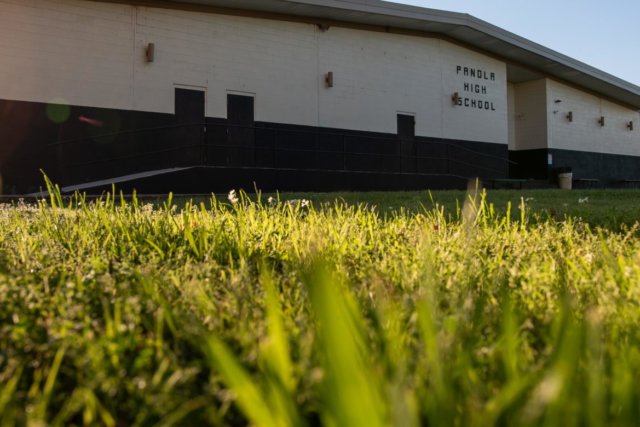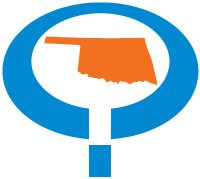Leaders at Norwood, another small district nearly 100 miles north of Panola in the town of Hulbert, say Epic came to them last year with a nearly identical proposal to convert the school to a charter managed by Epic. Epic planned to consolidate the Norwood and Panola districts, said Norwood Board President Danny Shoemaker.
But in December, the Norwood board rebuffed the proposal.
“[The Epic proposal] would not benefit our students, and we’re there for the kids,” Shoemaker said, adding he was grateful their situation wasn’t as dire as Panola’s. He questioned Epic’s motives, suggesting they were more about profiting through its management affiliate. “This was more to line somebody’s pockets,” he said.
Epic officials have denied they put profits over education quality and say their school’s rapid growth is proof that their online and blended models meet families’ needs. Shelly Hickman, a spokeswoman for Epic, said Panola and Norwood are examples of how Epic tries to make different learning models work together to serve all students.
But as a business, Epic continues to explore ways of accelerating its growth. Combined, its own two schools — Epic virtual and Epic Blended in Oklahoma City and Tulsa — enrolled at least 23,000 students this year. A fourth blended center is expected to open this fall near Rose State College in Midwest City. To attend, Epic students have to live in the same county as a blended center, and the Panola school is their first foray into rural Oklahoma.
Epic’s school in California is also expanding, now enrolling students from five of the state’s most populous counties. And an Epic-related company is in contract negotiations with Pulaski County Schools in Arkansas.
In the midst of that growth, Epic has drawn more scrutiny from lawmakers, the public and state and federal investigators, the Tulsa World reported .
‘Elementary hasn’t changed’
One state legislator says the law permitting the arrangement in Panola was never intended to be used by a virtual school.
A 2016 change to the Oklahoma Charter School Act allows a traditional school district to convert to a charter. The measure specifically states, “A conversion school shall retain the characteristics of a traditional public school.”
Sen. Ron Sharp (R-Shawnee ) said when the bill was considered in the Legislature, lawmakers didn’t discuss a conversion school being anything other than a brick-and-mortar school with regularly scheduled classes.
“This is Epic One-on-One (the statewide virtual school) at home under the pretense of a brick-and-mortar conversion charter district,” he said.
Some parents like the changes. Jessica Manning, who lives in Wilburton, near Panola, sends her four children to the school.
“At first, people had a mindset that our kids were going to be staring at a computer all day,” she said. “Elementary hasn’t changed. High school has more computer work, but they still have book work.”
For the Panola deal, Epic used a limited liability company it formed in 2015 called Community Strategies-CA. Community Strategies-CA is a nonprofit LLC, while the similarly named Community Strategies Inc. is the tax-exempt nonprofit that is the legal name for Epic Charter Schools.
Community Strategies-CA now receives all revenue for Panola, including local property taxes, state aid and federal funding.
There is just one other conversion school in the state: Millwood Elementary in Oklahoma City, which converted in May 2017, around the time Panola did. Millwood is still managed by the local school board.
Corcoran: Not charter, but ‘conversion’
The Panola district had been struggling with its finances since at least 2013-14. According to court documents, 25 teachers and staff sued the district in 2015, alleging they were owed a total of more than $91,000 in back pay. A creditor took the the district to court over about $2,500 in unpaid credit card bills.
Then the state cut school funding after a revenue failure. The state Department of Education gave the Panola school board an ultimatum: Balance the books by July 1 or the students will be reassigned to neighboring districts.
The plan to convert to a charter school seemed like the only option.
“Now we’re not going to be a charter school,” Corcoran, the superintendent, told community members gathered in the school’s cafeteria, according to a video posted to a school district Facebook page. “We’re going to be a conversion school, which means a traditional public school with charter rules.”
Referring to the Epic deal, Mikel Blake, then a Panola school board member, said, “It benefited them, it benefited us, it kept the school open. It didn’t make everyone happy. There were people who were unsettled.”
Panola’s board unanimously approved the plan on May 23, 2017.
“Epic basically saved us,” said Shannon Reed Ferguson, a Panola school board member whose daughter, Samantha, attends there.
Epic accused of ‘predatory marketing’
Wilburton Public Schools Superintendent Trice Butler talks about the struggles some families have faced since Epic Charter School took over the neighboring district in Panola. (Whitney Bryen / Oklahoma Watch) Epic’s rapid rise and push into school district management has many traditional school leaders wondering what’s next.
Pam Deering, executive director of the Cooperative Council for Oklahoma School Administrators, said the state’s lack of investment in public education over the last decade has contributed to many educators’ frustration with Epic.
“There is a concern, yes, that someone could swoop in and offer a huge chunk of change to take over a school,” Deering said. “We just have to educate our (local school) boards and superintendents and communities that a teacher in the classroom is where education needs to be, and virtual can be a part of that if it’s handled right.”
Trice Butler, superintendent of Wilburton Public Schools, which neighbors Panola, said she is concerned that Epic is looking to replicate what it’s done in Panola in other districts.
Butler said her primary concern is her belief that students at Epic are receiving a subpar education. She cited Epic’s low high school graduation rates and high numbers of students leaving Epic and returning to traditional schools with academic credit insufficient for the time they were enrolled. (Epic maintains that some students come to them behind in credits and the school helps them catch up.)
Epic’s presence in Panola has also raised concerns about aggressive attempts to attract students and teachers from surrounding school districts even in the middle of the academic year.
Panola spent $650 for postcards, and at least some were sent to addresses in nearby Wilburton school district, promising a customized education for students and touting the school’s “double-digit academic growth.”
Butler called this “predatory marketing” and said the statements made on the postcard are misleading.
Panola elementary students did post positive academic growth on the latest school report cards, with 80 percent of students improving between 2016-17 and 2017-18. But only 27 percent of those students scored on grade level, compared with 57 percent in Wilburton and 51 percent statewide.
Panola’s use as a hub brings change
Panola is so small that teachers handle at least two grades apiece. It has a Class B basketball team, but there’s no art, physical education or music, parents say. Epic’s taking over management of the school didn’t change that.
But other aspects have changed. Teachers can work part-time at Panola and part-time at Epic or another school. Superintendent Corcoran, for example, earned nearly $87,000 in 2018, but only $4,500 was for his role at Panola; he is actually a full-time Epic employee.
And Epic uses Panola as a hub for giving standardized tests to its statewide virtual school students in the area.
In the Norwood district, which rejected Epic’s management proposal, Epic officials deny that they were the ones who approached district leaders.
“Norwood reached out after hearing how we were able to financially and academically turn around Panola,” said Hickman, the Epic spokeswoman.
Shoemaker, the Norwood board president, said the company offered laptops for students and a stipend for internet services, but they pitched combining the local school board with Panola’s, which would have given each community fewer seats at the table.
After Norwood’s school board unanimously rejected the agreement Dec. 13, the district’s superintendent Ken Bridges, who Shoemaker said supported the plan, resigned, after serving six months in the position. Bridges could not be reached for comment.
‘Our school finances are sound and we have improved’
A slide on Panola Public Schools’ website discusses the district’s “customized education plan” for students. (Screenshot) Panola and Epic officials declined several requests by Oklahoma Watch to tour Panola school and speak to students and staff.
School board president Randy Conley provided a written statement saying parents and faculty are grateful for the school’s partnership with Epic, which he said has been beneficial both financially and academically.
“Today, our school finances are sound and we have improved (from F) to an overall grade of ‘C’ from the state,” he said. The letter grade is for Panola Elementary, a preK-8 school.
The financial uncertainty in Panola, and the transition to Epic, have caused many students to leave. Panola’s enrollment is down 35 percent from 2014, according to state data. It slipped by 2.7 percent, or three students, from 2017 to 2018.
Still, Conley says, “If it wasn’t for Epic, Panola school would no longer exist … We hope that more of the students that left Panola for Wilburton and surrounding districts during our uncertain time return to us.”
Reporter Andrea Eger of the Tulsa World contributed to this story.























